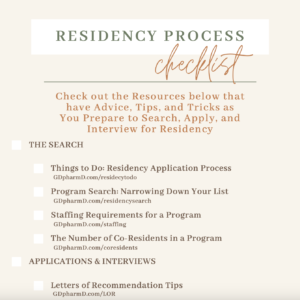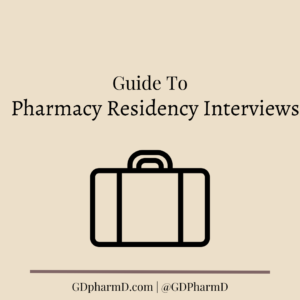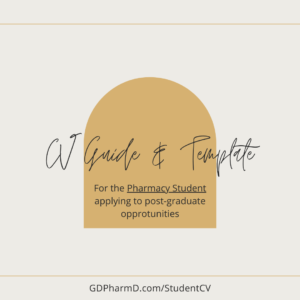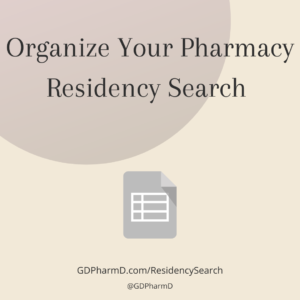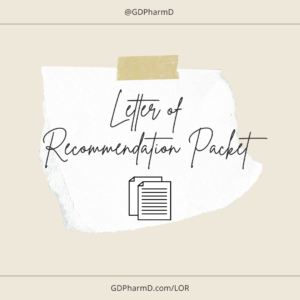Hey, welcome to the blog! I wanted to write a blog post about finding a job after residency and a bit about my process because finding one during residency training was so stressful for me and I didn’t hold back in sharing my experience in real-time. During residency, it was hard juggling residency, life, and the job search so if you feel like you’re going through it, don’t feel alone! By God’s grace, everything worked out as it did and I was able to find a job fit for my goals.
My goal with this blog post is for it to be a centralized place if you’re looking for guidance for the job search, it is a long post, but I wanted to be detailed and also share my story with the hopes that it helps others.
During my time in residency and especially beyond, I spoke and wrote about not doing a PGY-2, finding a job during residency, and handling everything in-between. I’ve compiled ALL those resources and pieces of advice below which includes a couple of Instagram posts, a personal open audio/podcast about my true feelings about not knowing what was going on with my life, advice on what to look for after you get a job offer, a live session that was recorded where I collaborated with two other pharmacists (who DID complete PGY-2s) about the job search, a short video on the logistics of the job search, and lastly, at the end of the blog post I talk a little about my job search process and give tips. I REALLY hope all of this is helpful to you!
If you’re new to my page, here’s a little about me: I graduated from Rutgers Ernest Mario School of Pharmacy school in 2020 and for residency, I matched at Johns Hopkins Bayview Medical Center for my PGY-1 (which was my #1 choice since the beginning of the residency process) by the grace of God! I chose not to pursue a PGY2 early on in PGY1. I finished up PGY1 in 2021 and then went on to become a Clinical Pharmacist post-residency.
If you finished a residency and you DO NOT want to go into a traditional clinical position, that is perfectly okay! Start to look into different places pharmacists work, look on LinkedIn to find other pharmacists who went on a different path after residency, and message them for advice and to gain insight on how they were able to transition. While there are MANY options post-residency, some areas to look into can be managed care/insurance companies, pharma, MTM, remote/telehealth clinical pharmacy, and contract jobs/agencies to gain experience in various fields. Also, keep in mind that your career is generally the long game, meaning not everyone’s first job is exactly where they want to be long-term. It’s perfectly okay if where you want to be eventually doesn’t happen immediately. If you know where you want to eventually end up, make a flexible game plan and revisit it frequently. For example, take a look at the job descriptions of jobs/companies you want to eventually work for and look at what they prefer/require for candidates. Based on those descriptions, find a role where you are able to get experience and projects in those areas and build your resume so that when it’s time for you to transition, you’re ready. For example, if you want to eventually work for the CDC or FDA and the job descriptions talk about leading projects, being in charge of public health initiatives, working with other departments, looking at medication safety, reviewing promotional material, presentations, etc. Then, in a role right after residency, you may want to look for one where you would have opportunities to work on formulary committees, present to HCPs, participate in health clinics, and review medication safety events, etc so that when the time comes for you to apply to FDA, CDC, or whichever field you’re looking into you, you have those ‘transferable skills’ to highlight. I hope this makes sense!
So let’s get started with Resource number one
Resource #1: Tips for Finding a Job Post-Training
💊What are you Looking for in a Role? Have an idea of what is important to you in a role, but be flexible! You never know what’s out there because there are so many different pharmacy models out there. This takes a lot of self-reflection & may change with time as you become familiar with what is the ‘norm’ for the geographic location you are looking in. For example, the hospital where I accepted a job had a great model that I hadn’t worked in before. ALL the pharmacists worked under a Collaborative Practice Agreement and were able to work independently and autonomously alongside other HCPs, be the Clinical Pharmacist for various patient care areas (from the Emergency Department to ICU, to Heart Failure clinics, and beyond), go on rounds with the teams, do patient counseling…etc. I didn’t even know this was possible in the geographical area I was looking in but I was so happy about it! The moral of the story, have an idea of what you want but keep an open mind.
💊 Where to Look for Job Openings: I used LinkedIn, Indeed, & directly went to hospital websites. Keep in mind, some job search boards require companies to pay in order for the job to be listed on their job search engine, so that’s why going directly to the website of the employer is good as well. Even if you find a job on LinkedIn or a similar job board, ALSO check on the employer’s website to ensure the job is still open/accepting job applications. Pharmacy organizations like ACCP, ASHP, and your local pharmacy chapter also have job boards that you can browse through as well. While browsing, I would begin to make a list of the jobs that you’re interested in. I wouldn’t make the list super detailed, just the name of the organization, job title, Job ID#, and link to the posting. This way, you can quickly use it when you’re leaning into your network (more on that later).
💊 Set up Alerts for Job Openings: Customize the alerts based on your needs such as geographic location and job titles. Set up a few different alerts with different job titles because you’d be surprised how various organizations call their pharmacists. For example, you can have an alert with the job title pharmacist, then another clinical pharmacist, then another clinical pharmacy specialist, then another could be a transition of care pharmacist…etc.
💊 LEAN Into Your Network: This is VERY important. If you’re already in residency, you have a network right there. Use it! Don’t be shy! If there’s a job you’re interested in, talk to your RPD/Preceptors, etc to see if they know ANYONE that works there & get in contact with them. A 15-minute conversation can go a long way. I will say if the geographic area where you’re doing your residency is the same/near the area where you want a job, it does give an advantage in terms of your network because there is a higher likelihood that someone in your residency program has connections to nearby hospitals. If you’re not in the same geographic location where you want a job, that’s OK because pharmacy connections spread far and wide. In my case, I saw a job at a hospital that seemed interesting and took note of it. I mentioned the job to my mentor at the time and also to a pharmacist who graduated from my residency program a few years before me and I did NOT know they had any connection to that particular hospital and both of them just so happened to have good connections to that hospital’s pharmacy department which was AMAZING! Those two small convos helped me land my job and it wasn’t even intentional. Talk to your preceptors, RPD, DOP, past residents, etc about places you’re thinking of applying and also to garner advice. I’ll speak a little about what I was looking for in a role below but I didn’t want my role to be purely order verification/staffing and since I knew I wasn’t going to do a PGY-2, it was important that I also speak with others who didn’t do a PGY-2 and landed roles post-residency that were in line with positions I was looking for.
💊 If You Want to Stay at the Same Hospital/Health System, Make it Known: Talk with your pharmacy leadership! The hospital/health system where you did your residency has invested time and money to train you to be a pharmacist and leader. They may have approval for an FTE in the works or know of a current employee who is transitioning out of the organization or even be willing and able to create a position for a current resident. However, if they don’t know you’re interested, you may not be top of mind when those situations are occurring behind the scenes. There are pros and cons of staying at the same hospital and if you want to stay at the same hospital, speak with other people in your network or via Linkedin who stayed at the same hospital post-residency to get their take. One potential con is what I’d call ‘familiarity’ where those in the department only know you as a resident and may (but not always) continue to see you/treat you as such rather than as a growing professional. However, if you’re in a health system you can always switch hospitals within the same health system. A major pro of staying in the same hospital is would be that you are familiar with the policies, the people, and the ins and outs of various patient care areas and all those are huge hurdles to get over when starting a new job at a new place. Knowing the ins and outs already gives you a good foundation and can cause you to grow quickly, advance, and take on positions perhaps faster than others who have more of a learning curve.
💊Don’t Rush the Process: Just because others around you are committing to jobs and residencies, remember that you are on your own timeline. Trust me, I know the feeling of those around you committing to job offers and residency programs who know their next steps while you are trying to figure it all out. It was STRESSFUL, but I had to constantly remind myself that I’m on my own path and God’s timing is perfect. It was tough when I was asked often by others what was next and I had no idea. Just remember you’re on your own timeline and that this is just the beginning of your career. Waiting well and being okay in the in-between when you don’t have all the answers is honestly just a part of life. Lastly, just for reference, I started browsing for jobs in March and accepted my clinical pharmacist position in May.
💊Don’t Be Put Off by the Job Description: Usually those are generic HR-related descriptions which can be frustrating because they may not give you much context. You may have to wait for the interview or talk to someone that knows more or currently works in the position to get an idea of the pharmacy model.
💊 Don’t shy away from PRN/Floater positions: If you really like the hospital/company, don’t write it off. If you get an interview, do it and feel out if there is a possibility that the position can become full-time and if so, what that timeline would be (this is essentially what happened to me haha keep reading for the full story).
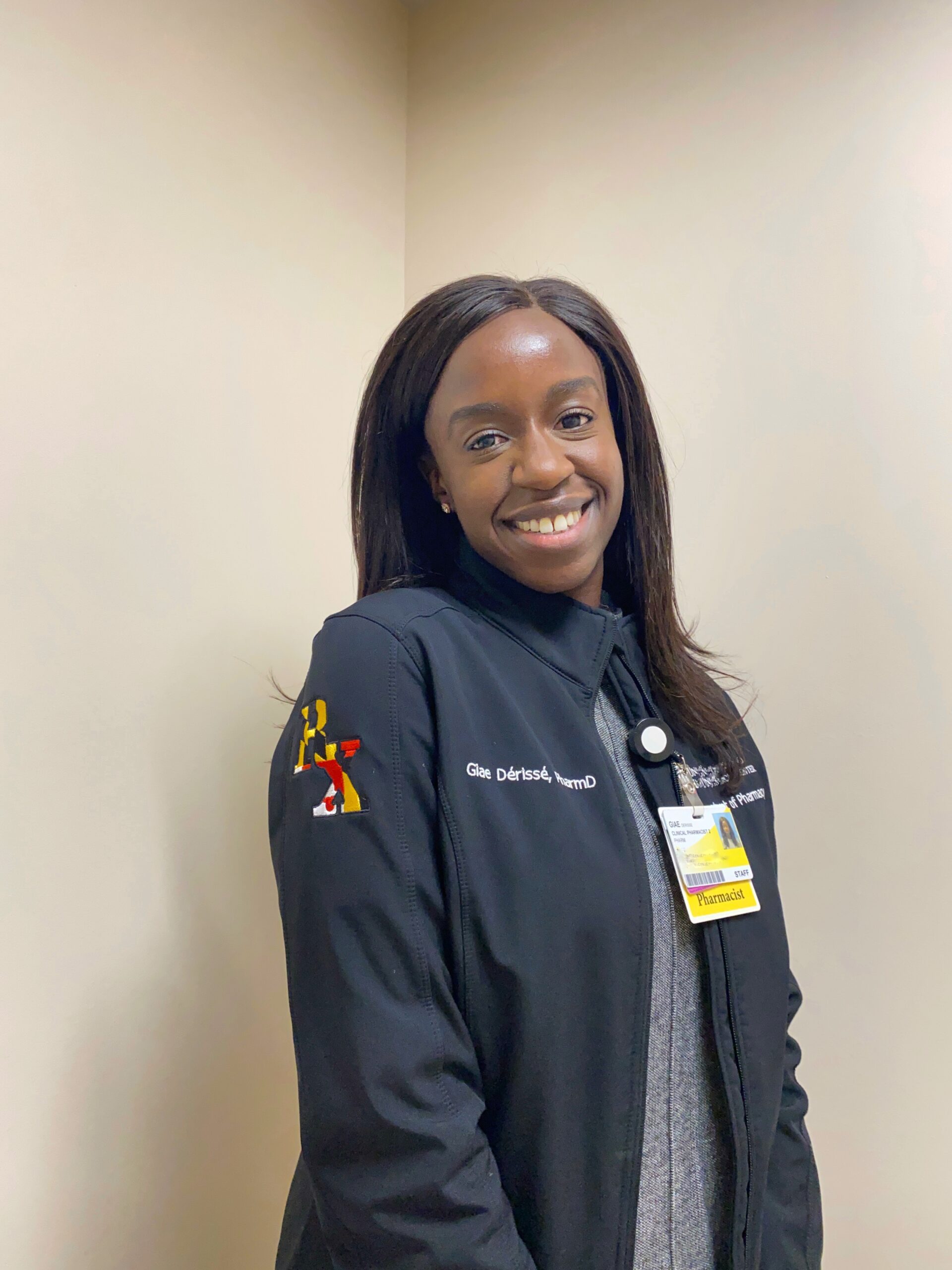
Finding a job post-training IS stressful. Those times were not easy.
Something that I was told that helped lift the weight off is “You’re looking for your first job, not your forever job” and that honestly freed me from all the fears I had in looking for a job. If your first job does turn out to be your forever job, amazing! But I think the point is that we get so wrapped up in thinking this decision is permanent and that it’ll be the only thing you do & that simply isn’t true.
Look around you, look at your department & see how many people have transitioned into & out of their roles and shaped their own careers – so stop and take the pressure off! It’s called career ‘building’ for a reason.
Original Instagram post HERE.
Resource #2: Recorded Live Session on the Job Search
I was able to team up with two amazing pharmacists Laura Holliday and Kelci Dalton to do an Instagram Live on the Job Search Process.
Check out the replay HERE. We talk about our experiences and of course, gave tons of tips and answered questions about the job search.

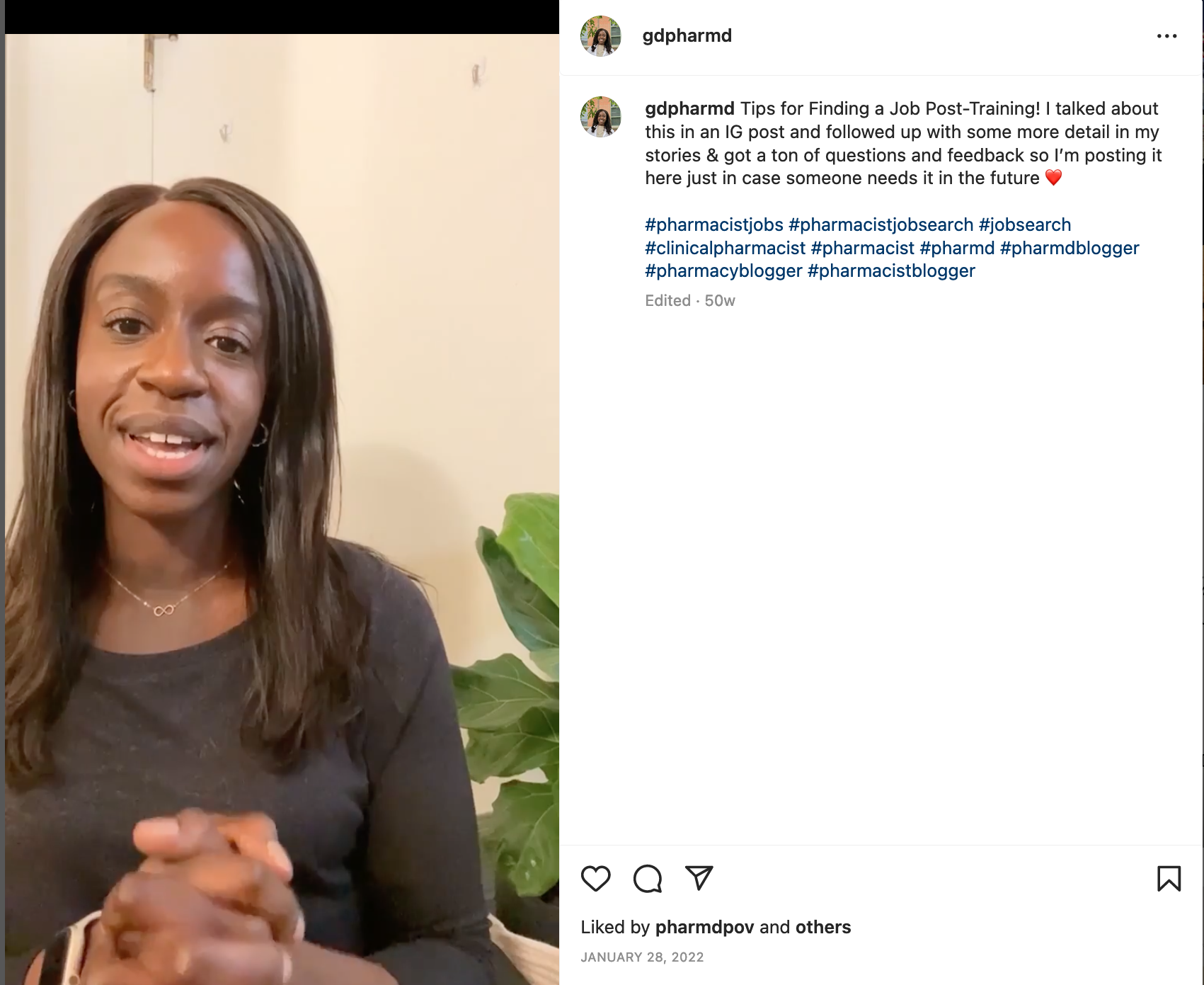
Resource #3: Video on Job Search
This was originally on my IG stories, but I converted it to a video so it can be re-watched when people need it! Click HERE if you would like to watch. It’s a short 6-minute video.
A Little About my Job Search Journey: Background and What I wanted in a role.
Pretty early on in my PGY-1 residency, I knew a PGY-2 wasn’t going to be something I pursued, so I knew the time would come eventually when I would have to job search. Nothing by any means prepared me for what this job search would be lol. I definitely had an intense time of stress, doubt, and worry. However, looking back now, I didn’t need to stress that much. Your job post-residency is NOT an end all be all – your job/career/profession shouldn’t be where you find your identity, so don’t worship nor obsess over the process. At the end of the day, I knew that I would find a job, it was just a matter of when and where. At the end of the day, I would still be a PharmD with residency training and I 100% believed that God would provide a job for me.
Where I started was narrowing down geographically where to look for a role. I was pretty open to moving but knew it would likely be where I already was (in Maryland) or where I moved from (New Jersey). I prayed a lot about it and ended up sticking with Maryland which was a great choice looking back. Therefore, in terms of geographic location, I knew I wanted to stay in Maryland where I did my residency, so that narrowed down my search which helped in the sense of not being overwhelmed with every job posting across the U.S.A. On the flip side, however, it limited me in the sense that there are only so many hospitals in Maryland and I wanted to be in a metropolitan area (vs. a rural area). I started with the hospitals and clinics nearest to Baltimore City when I was performing my searches and branched out from there.
In terms of what I was looking for in a role, I wanted a clinical role that allowed me to go on rounds and utilize the diversified clinical knowledge that I picked up during residency (vs. being siloed into one therapeutic area). I wanted it to be mainly clinical with some staffing/verification so that I can keep those skills up and be well versed in operational aspects of pharmacy because that of course makes you a better asset to your clinical team and to the pharmacy department, a role that was during ‘normal’ day-time hours, didn’t prefer to work weekends (although I knew there was a high likelihood), and lastly, I wanted a role that was inpatient (in a hospital).
I ended up with an inpatient job that was approximately 80% clinical, 10% staffing/order verification, and 10% projects/administrative duties which was great a great mix for me- that’s my own percentage breakdown of what I perceive, not something that was given by the job lol and the percentage of projects/administrative duties did go up as I got more involved. I was on the floors about 90% of the time, went to rounds with the team (post-op floors, ICU, CSU, Internal Medicine), and was one of five pharmacists that worked as the sole pharmacist in the Emergency department. I also counseled patients, worked on antimicrobial stewardship, analyzed safety reports, and worked on different projects – the whole nine! Point is, there was a ton that I had the opportunity to do which I’m so thankful for. It was about 20-25 minutes outside of Baltimore City, but still in a busy suburban area off the freeway and there was a college/college town nearby too. There was also A LOT of 1:1 patient counseling on disease states such as heart failure and diabetes so I did have some ambulatory care-ish exposure as well. I enjoyed this balance because I knew it was a place where I could grow in my career and gain tons of experience in various disease states/therapeutic areas and truly feel satisfied and proud of the work I was doing. I also felt as though I would have the resources to accomplish the tasks set before me and to aid in any way I could to help patients and help accomplish the goals of the department. Lastly, my schedule was mostly days – four 10-hour shifts per week. The only time I would work through evenings was when I was the ED pharmacist for the week and that ED role ended at 9 pm and I worked every fourth weekend.
So, that’s a little background on where I was looking for a job, what I was looking for in a role, and what I ended up with.
The next step was actually finding one LOL and this was where it got stressful. If you find that you are stressed about the job search, take a breath, forget the ‘what will people think if I don’t get a job,’ ‘what will I do’…etc. It will come together in the end! Our minds can lead us down some not-so-bright places but stand firm and know that you will find a job regardless of the lies that pop up in your head.

Resource #4
I shared my feelings openly and candidly in an audio post on my page detailing how I was feeling during the process and how I felt in the ‘in-between’ of not knowing what to do with my life since I knew I wasn’t doing a PGY2. Take a listen HERE if you need some encouragement 🙂
A Little About my Job Search Journey: The Story of How it Happened
In short, ultimately, the way I got a job was because I saw a PRN job post online and it sounded very interesting and it was at a really good hospital. I spoke with my mentor at my program about it for advice as well as a pharmacist who graduated from my residency program who also did not do a PGY-2 but landed a clinical specialist position right out of PGY1. It turns out that one of my preceptors at my program knew the manager at the hospital that had that PRN position and connected us! I spoke with the manager on the phone and was then invited for an on-site interview. It was a PRN position, so I was apprehensive because with PRN positions, there are no benefits/stability/guaranteed hours (but after working post-residency, I’ve come to realize a lot of places have PRNs that essentially work full-time hours and they have a ton of flexibility and may get paid more when divided out per hour haha). Even though it was a PRN role, I still went to the on-site interview AND I made it clear that my goal would be to become a full-time employee. I also received some insight that a full-time position could open up/be approved soon so that gave me hope! After the interview, I liked the prospect of getting the job even more because of all I learned at the interview and I felt at peace about the role (even though it was still PRN). Soon after the interview, I received a call from the manager that a full-time position opened up at that very same hospital (which is what I wanted)! So, they extended an offer to me not for the PRN position, but for the full-time one!! So basically, my full-time job didn’t even exist when I was job searching, it was in the works/created after I interviewed. GOD IS GOOD. That all happened in less than a week lol and I was simultaneously waiting for a response back/offer from another interview I did as well (I did end up getting an offer for that job as well, but declined the offer). At the beginning of the search, nothing seems to be happening and then all of a sudden you get multiple offers and interviews and it seems like things are happening way too fast. Having interviews, offers on the table, and waiting for offers is a very delicate balancing act. Just remember to be professional at ALL times, don’t feel pressured to give an answer – ask for extra time if you need it, and be honest through and through.
As I mentioned above, I didn’t start searching for a job until March, had some interviews in April, and accepted my job offer in early May and my residency ended at the end of June. Fortunately, I didn’t need to go on tons of interviews for the right role to come along. The biggest barrier for me was figuring out what I wanted out of a job and in a job and so before I started searching I was sure to do a lot of reading online, talked to my preceptors, RPD/RPC, and others who completed a residency.
Resource #5: Q&A Response about What to Look For After Your Offer
Accepting an offer, comparing benefits packages, negotiating salaries, and all that was super new for me since this was a real career job so I share some of those tips below.
If you want some more tips on the job search, check out the response I gave below! If you want to look at the original post, check it out here.
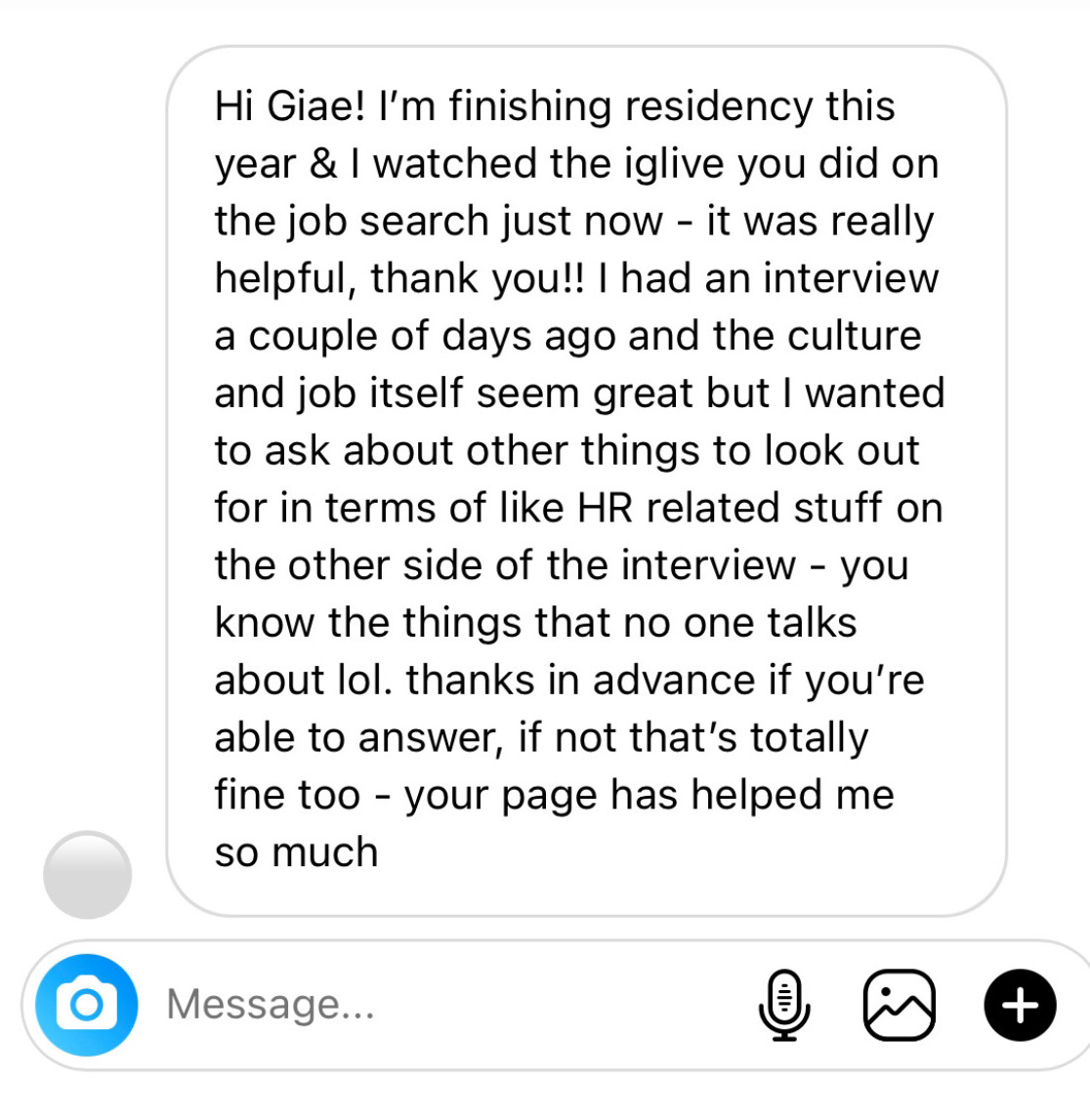

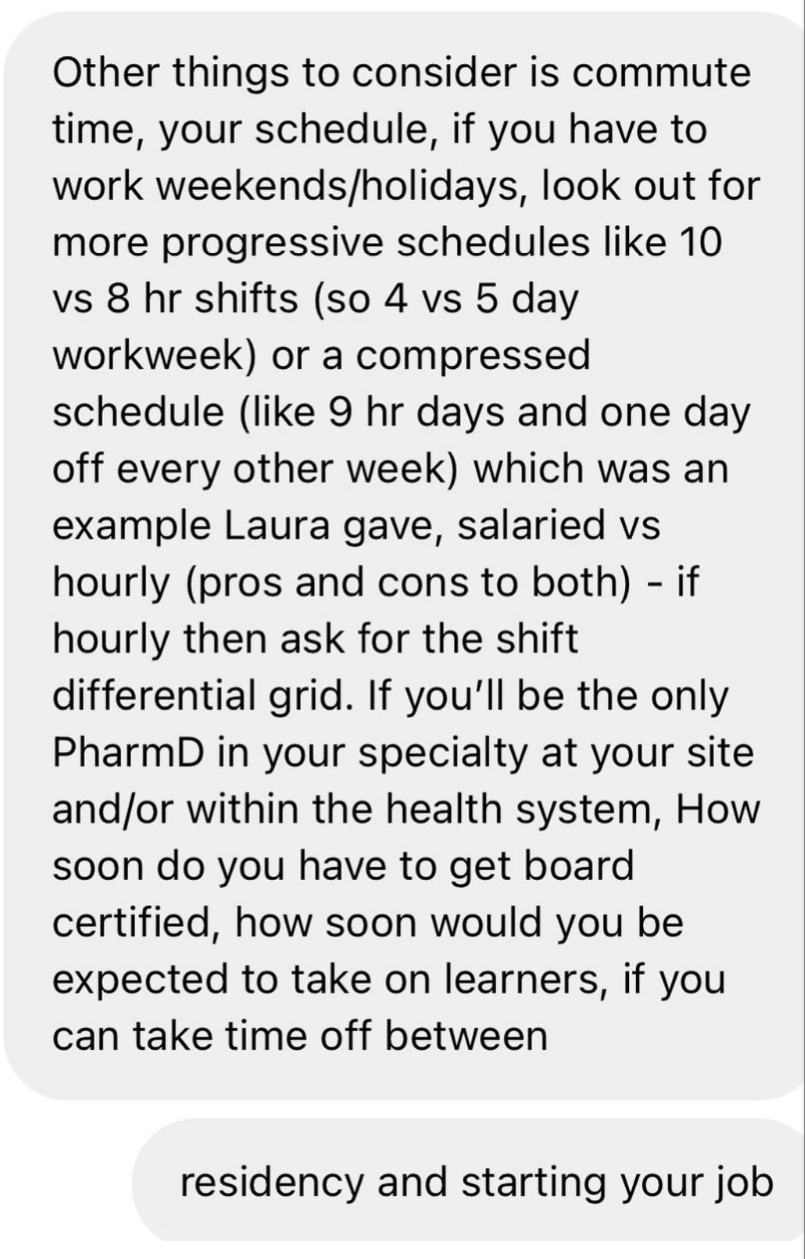
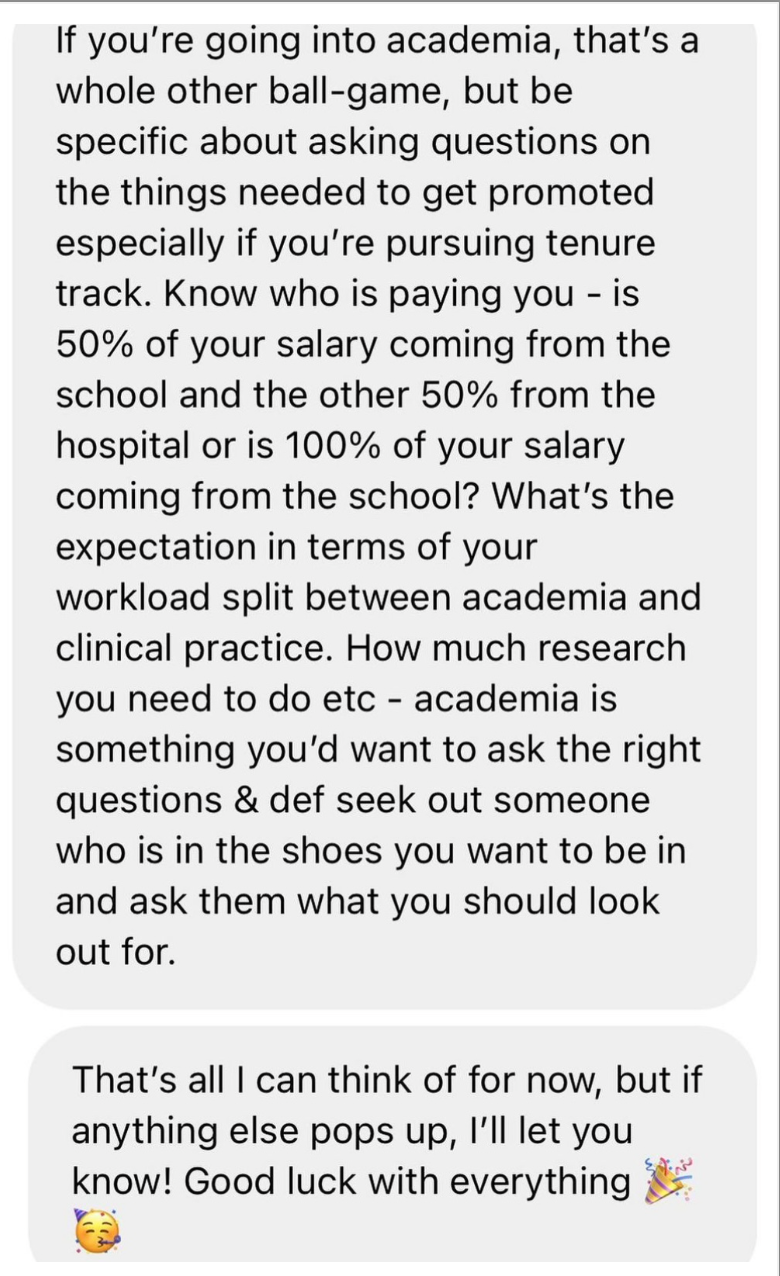
Interview Tips
If you’re curious, I had to present a topic of my choice for one of my interviews in front of a panel of clinical pharmacists and specialists. That position was for a critical care/cardiology position, so I did my presentation on Acute MI. For another interview, there was no clinical presentation or clinical questions. One interview was less than an hour, and another was multi-day (short interviews with HR, the department director, and then a half-day interview with the current pharmacists and pharmacy technicians). The interviews for jobs are generally shorter than the interviews for residency. So, you have a shorter window of time during the interview to show them you can do the job, ascertain if you would like to work there, ‘impress’ them, show your enthusiasm, and ask questions so keep that in mind while preparing for interviews.
If you feel rusty about your interview skills, listen to/watch youtube videos and podcasts on interviewing and look online for typical examples of questions and behavioral questions. Always know why that hospital, why that position, and why you! Be sure to tie in the organization/company, job description, and skills into your answers. Hospitals vary widely in how they interview and they will likely let you know beforehand what is required of you if anything. Highlight unique experiences you’ve done in residency, how you went the extra mile, worked in a team, resolved conflict, answered to criticism, etc. At this point in your career you need to think about this from a manager’s point of view and from your future colleague’s point of view – what type of person would this manager want on their team and what kind of colleague would work best for this group.
Lastly, similar to interviews for getting a residency, if you have to present something, I would recommend using a presentation or topic discussion that you’ve already done in residency if it falls under the requirements. Be sure to also send a thank you email after your interviews, 24-48 hours after is usually recommended.
Biggest takeaways on advice: remain calm throughout this job search process, talk to as many preceptors/pharmacists as you can to get advice but always analyze the advice to determine if it applies to you, and don’t be shy – reach out and talk to people that graduated from your residency program, do your due diligence online but quickly find out if a position you’re interested has any connection to your current network, make your goals known but also be flexible, and never knock a PRN position because it can turn full time. Lastly, when interviewing, remember you are also interviewing them – we spend A LOT of time and mental energy at work, so be mindful of the fact that this is a place where you will spend a lot of time and energy.
Not Doing a PGY-2
I do plan on doing a blog post at some point on my decision about going straight for a clinical pharmacist position and skipping a PGY-2, so look out for that sometime. But, in the meantime, there are two blog posts I found useful/relatable during my process. The first one from Aisha Shokoya, PharmD, BCPS, BCOP who skipped PGY2, went straight for a clinical position and is now an Oncology Clinical Pharmacist and Adjunct Professor, check out her post “Why I Did Not Do a PGY-2 Pharmacy Residency” HERE. The second is Madeline Acquilano, PharmD, BCPS who also went straight for the clinical position and is now an Outpatient Ambulatory Care Clinical Pharmacist, check out her post “How I decided to Skip PGY2 and Pursue a Clinical Position” HERE. When you talk to various people and read blogs, you’ll find there are many different paths people take to get to where they want to be in their career and that’s what makes it great and take the pressure off! You made it through pharmacy school, residency, and all the other things life throws at you!? You’ll make it through this too.
Remember: “You’re looking for your first job, not your forever job”
I hope all those resources are helpful to you! As always, best wishes in your job search, and if you have any questions at all, feel free to message me on Instagram.

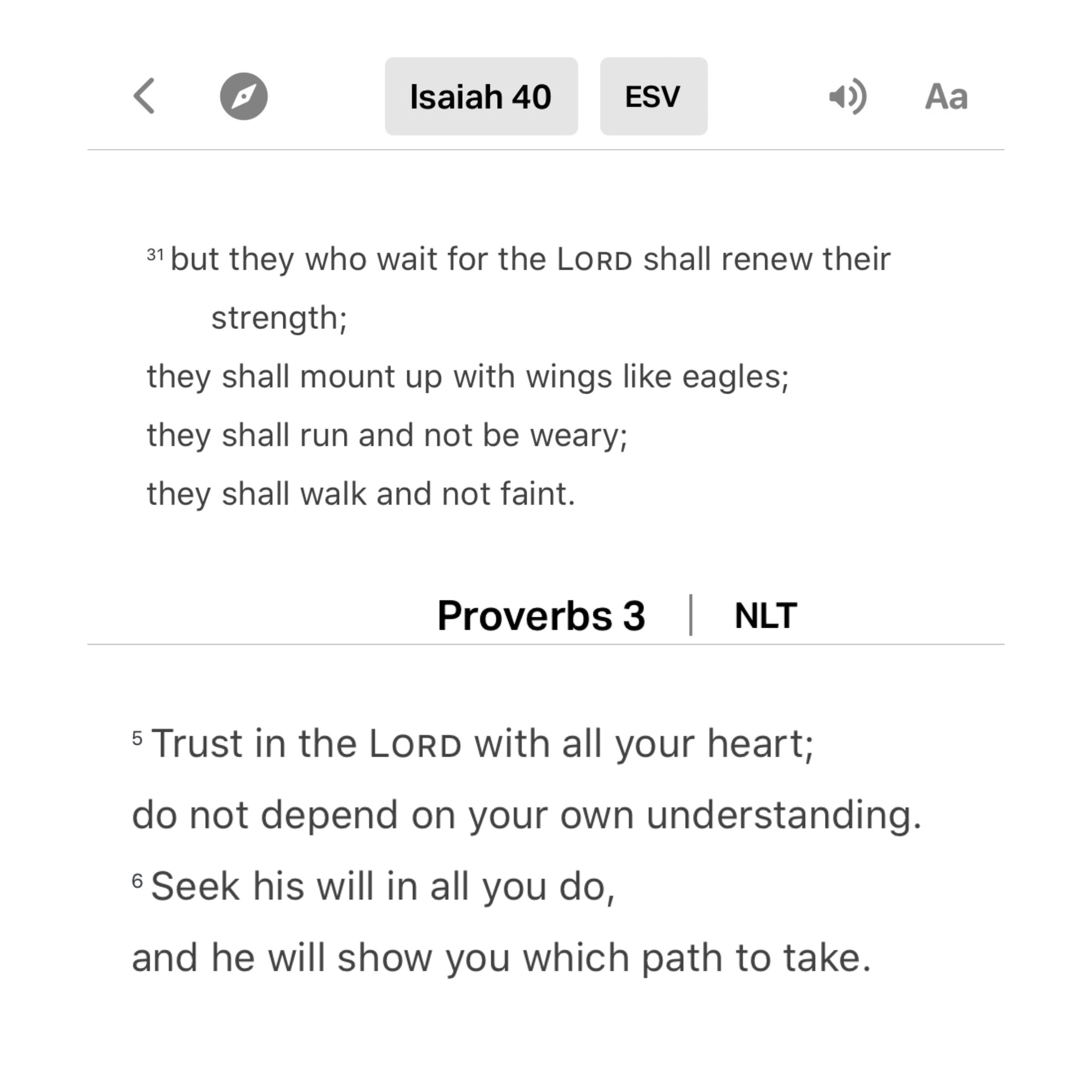
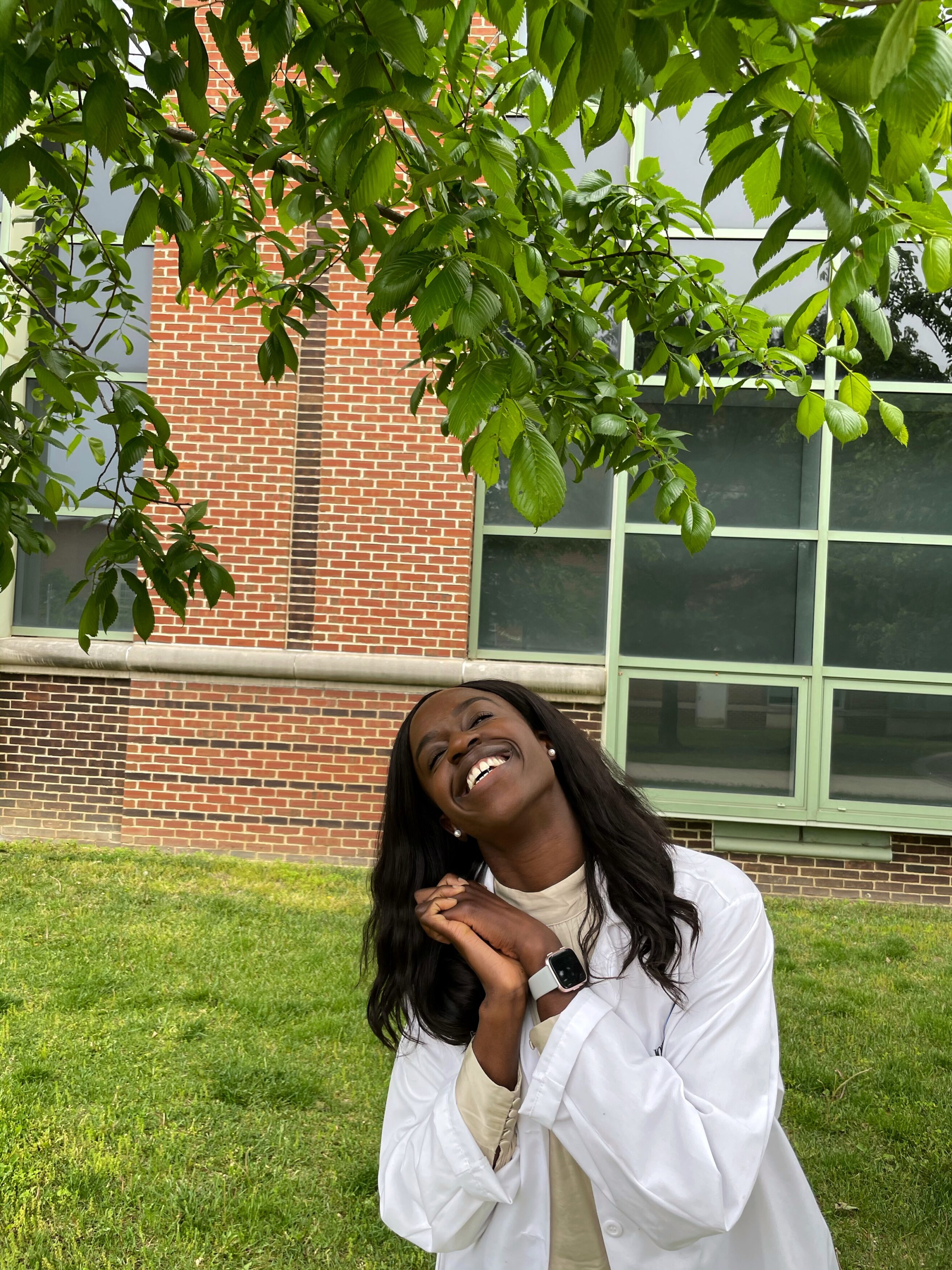
Scriptures to meditate on to get your spirits up and strengthen your trust in God:
Psalm 37:23-24: “The Lord directs the steps of the godly. He delights in every detail of their lives. Though they stumble, they will never fall, for the Lord holds them by the hand.”
1 Peter 5:7 “Cast all your anxiety on him because he cares for you.”
Proverbs 16:9: “We can make our plans, but the Lord determines our steps.”
Psalms 27:13-14 “Yet I am confident I will see the Lord’s goodness while I am here in the land of the living. Wait patiently for the Lord. Be brave and courageous. Yes, wait patiently for the Lord.”
Psalms 130:5 “I am counting on the Lord; yes, I am counting on him. I have put my hope in his word.”
Psalm 37:25 “Once I was young, and now I am old. Yet I have never seen the godly abandoned or their children begging for bread.”

Pass your Pharmacy Exams: BCPS Tips
